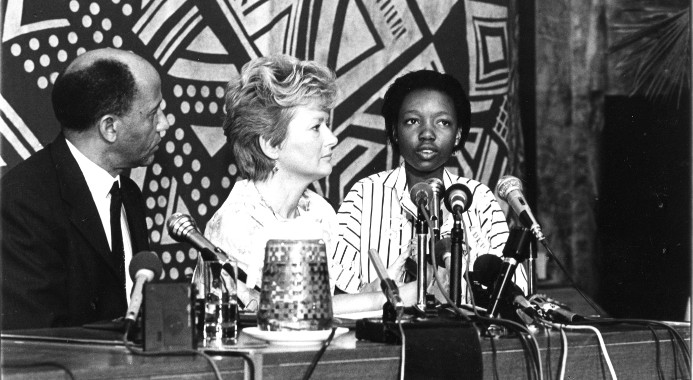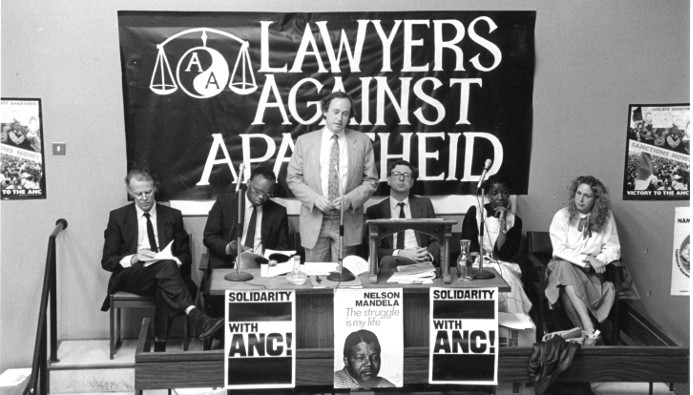RAISING AWARENESS OF APARTHEID
Healthworkers, architects and lawyers all set up groups to raise awareness of the impact of apartheid in their own professional areas. They campaigned to end the links between British and international organisations and whites only bodies in South Africa. As resistance to apartheid grew, they supported their South African colleagues in their fight against racial segregation.
HEALTHWORKERS AGAINST APARTHEID
Healthcare under apartheid was grossly discriminatory. The AA Health Committee’s newsletter Health and Liberation exposed the huge gaps in life expectancy between blacks and whites and the widespread malnutrition among black children.
The Committee won support from the British Medical Association (BMA) and the Royal College of Psychiatrists for South Africa’s exclusion from world professional bodies. In 1984 the BMA resigned from the World Medical Association in protest against the re-admission of the Medical Association of South Africa. South Africa was expelled from the International Red Cross and forced to resign from the International Planned Parenthood Federation.
MEDICAL EQUIPMENT
Healthworkers collected medical equipment for the clinic at the ANC’s Solomon Mahlangu Freedom College in Tanzania and worked with the Namibia Support Committee to provide health kits for Namibian refugees. The Health Committee’s Medical Aid Campaign for Southern Africa (MACSA) promoted material aid collections by local AA groups and other organisations.
The Committee took up the case of Maggie Jones, banned from the European Paraplegic Table Tennis championships for distributing anti-apartheid leaflets. In 1985 South Africa was suspended from the Stoke Mandeville International Paraplegic Games.
ARCHITECTS AGAINST APARTHEID
Architects against Apartheid ran a long campaign to persuade the Royal Institute of British Architects (RIBA) to sever its links with all-white architectural institutions in South Africa. It persuaded RIBA to withdraw recognition from segregated architectural courses at South African universities. From the late 1980s, the group worked with colleagues in South Africa to plan for a post-apartheid built environment.
LAWYERS AGAINST APARTHEID
From 1987 Lawyers against Apartheid exposed the abuse of the legal system in South Africa. The group supported prisoners in political trials and opposed the use of the death penalty. It also advised anti-apartheid activists in Britain on their right to protest.
CHILDREN, APARTHEID & REPRESSION
The 1988 conference on Children Apartheid & Repression in Southern Africa led to the setting up of new professional groups to campaign against apartheid. Teachers, social workers and youth workers all looked at how they could contribute within their professions to the ending of apartheid.
 In September 1987 an international conference in Harare heard testimony from children who had been tortured by the South African security forces. Over 200 health workers, lawyers, social workers and representatives of other professional groups met children from within South Africa. In the photograph Glenys Kinnock listens to one of the witnesses. Copyright © Pieter Boersma
In September 1987 an international conference in Harare heard testimony from children who had been tortured by the South African security forces. Over 200 health workers, lawyers, social workers and representatives of other professional groups met children from within South Africa. In the photograph Glenys Kinnock listens to one of the witnesses. Copyright © Pieter Boersma

